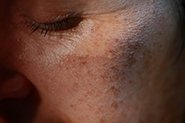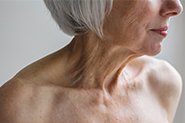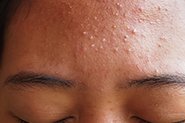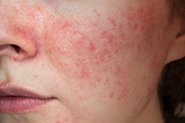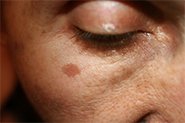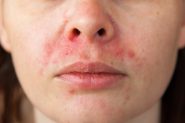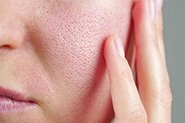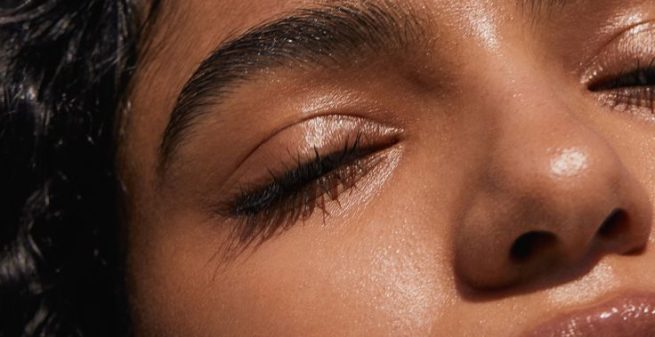
It’s a common belief that retinoids make you more sensitive to the sun, and therefore more likely to get sunburnt. For this reason, many fear to use a retinoid during warmer months and cease their treatment during summer. Here’s what the science says about this…
Firstly, here’s some terminology we need to understand:
- Photoreactivity ↓
Most retinoids are sensitive to light (‘photoreactive’), meaning they break down when exposed to intense light and UV radiation, losing their effectiveness. This is why your tretinoin and tazarotene are applied at night, rather than during the day. Some commercial retinoids do remain stable when exposed to light and can be used during the day. We do not use those retinoids at Qr8.
2. Photosensitivity ↓
Photosensitivity means a drug or ingredient causes increased sensitivity to the sun and your skin it more likely to get sunburnt.
3. Phototoxicity ↓
Phototoxicity is a rare reaction that occurs when a substance on your skin becomes activated by sunlight and causes a severe chemical burn, often with painful blistering within 24 hours of sun exposure. One example of this is ‘margarita burn’ that can occur when lime juice splashed onto skin is exposed to sunlight. Many other chemicals, including plant and fruit juices as well as drugs, can cause this kind of reaction.
Retinoids are photoreactive, but do not cause photosensitivity or phototoxicity. This has been studied in 4 separate clinical studies. In each one, the test subjects applied 0.05% tretinoin to their skin, and were exposed to increasing levels of UV radiation. There was no increase in sunburn, or phototoxic burns, reported in any of these studies.
Some important things to know when using a retinoid:
In the early days of using a retinoid, your skin can feel more sensitive overall, and thus you may feel the sun more acutely on your skin. Retinoids also increase the blood flow to your skin, and you may flush more easily because of this. This can be misinterpreted as photosensitivity. However, the science shows that there’s no need to worry about being more prone to sunburn because you are using a retinoid or stop your retinoid for holidays or during summer. It is safe to start and continue your retinoid without interruption during the warmer months.
It’s important to note that sun exposure without adequate sun protection IS unsafe however, and leads to skin cancers, skin damage, and contributes to 80-90% of the signs of aging. So, avoiding this is important for your skin and overall health, whether you are using retinoids or not.
As part of Qr8 treatment, we encourage all patients to use proper sun protection practices as an added level of protection against UV radiation. This is just as important as using the treatment itself!
So, do I need to wait until winter to start a retinoid?
No! Sun protection is important all year round, so you can still use prescription skin treatment AND enjoy your summer holiday. In fact, that’s our goal for you at Qr8 – a simple and consistent year-round routine that involves proper sun protection as part of your daily life. And now you know that retinoids DON’T make you more prone to sunburn.
But did you now that lower humidity and drier skin overall in the cooler months actually makes it more difficult to tolerate prescription treatment when starting out? Incorporating a retinoid in your routine is much easier in warmer weather.
And if you’re already using prescription treatment, stopping your retinoid for a period of time means your results will stall, and you will need to phase your treatment back in gradually, likely with increased dryness and peeling. Because your skin feels more sensitive in the beginning, the cycle of sensitivity and delayed results will be perpetuated.
Long term retinoid use actually protects your skin from the sun!
Retinoids stimulate collagen production whilst reducing enzymes that break down collagen. This firms and plumps your skin whilst providing extra structural support, making your skin more resilient to the harsh effects of UV radiation.
Retinoids also aid in cell renewal, shedding old UV damaged cells more quickly and replacing them with healthy new cells, whilst also improving skin barrier function.
So…it’s a win-win all round for prescription retinoids and your skin!
WOULD YOU LIKE TO CHAT TO ONE OF OUR FRIENDLY DOCTORS ABOUT YOUR SKIN CONDITION?
CLICK HERE TO BOOK A CONSULT WITH OUR EXPERIENCED MEDICAL TEAM.
REFERENCES
- Griffiths CE, Russman AN, Majmudar G, Singer RS, Hamilton TA, Voorhees JJ. Restoration of collagen formation in photodamaged human skin by tretinoin (retinoic acid). N Engl J Med. 1993 Aug 19;329(8):530-5. doi: 10.1056/NEJM199308193290803. PMID: 8336752.
- Slade HB, Shroot B, Feldman SR, Cargill DI, Stanfield J. Reappraising the phototoxicity of tretinoin: a report of four controlled clinical trials. Photodermatol Photoimmunol Photomed. 2009 Jun;25(3):146-52. doi: 10.1111/j.1600-0781.2009.00433.x. PMID: 19438994.
- Cho S, Lowe L, Hamilton TA, Fisher GJ, Voorhees JJ, Kang S. Long-term treatment of photoaged human skin with topical retinoic acid improves epidermal cell atypia and thickens the collagen band in papillary dermis. J Am Acad Dermatol. 2005 Nov;53(5):769-74. doi: 10.1016/j.jaad.2005.06.052. PMID: 16243124.


